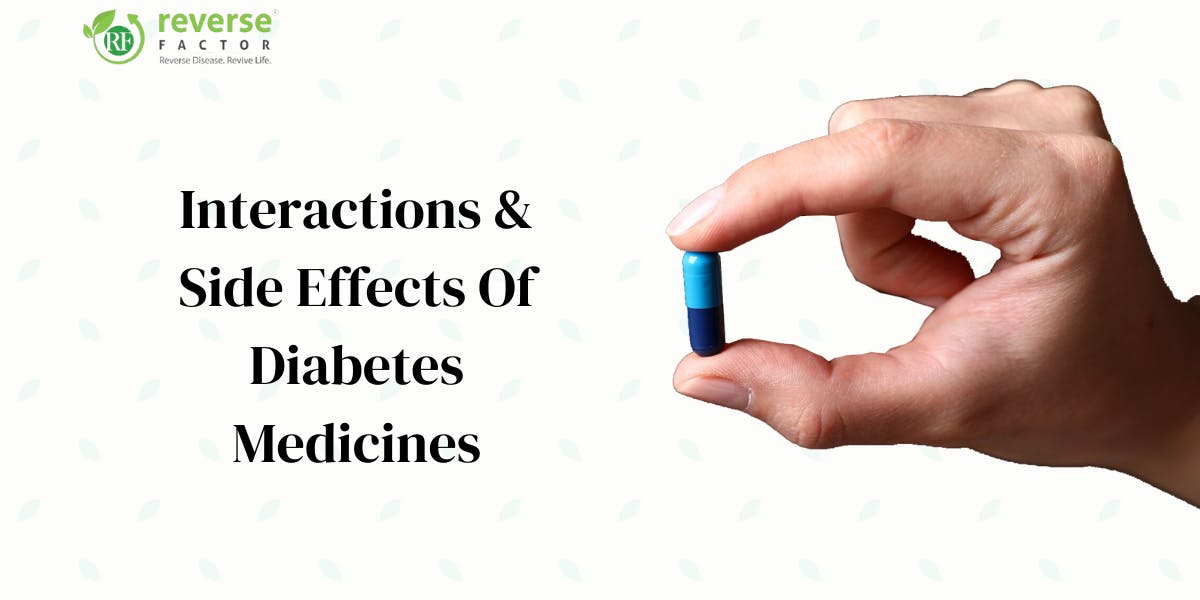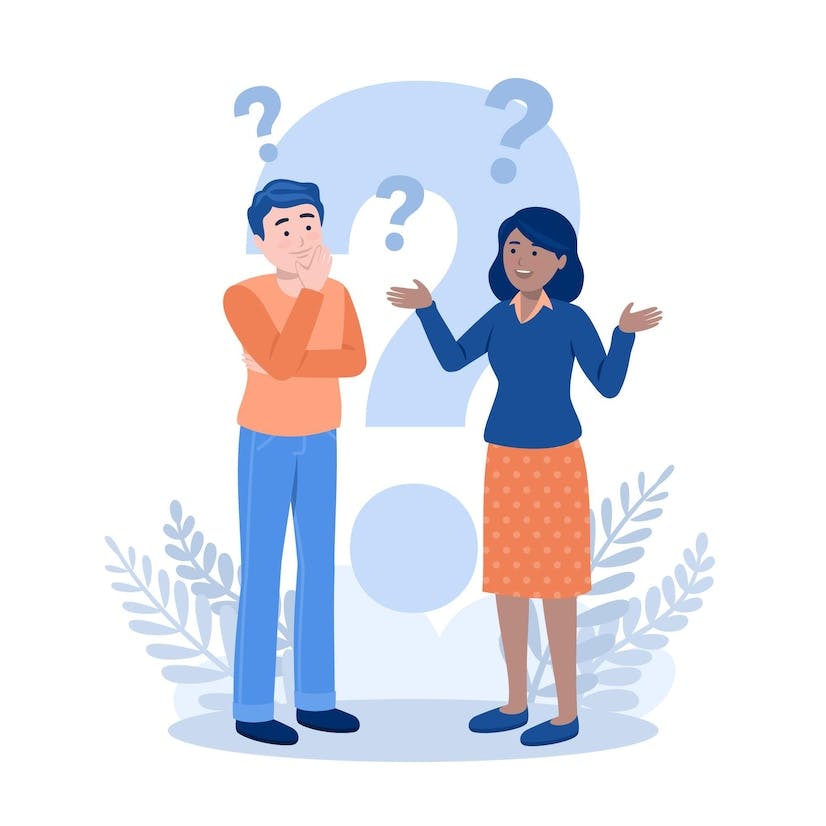For many years, people have been seeking a better way of managing diabetes. The discovery of insulin and its use has led to life-changing benefits for millions of people suffering from the disease. Unfortunately, there are still many people who are still unaware of how dangerous diabetes medicines could be. The long-term use of diabetes medicines can cause problems in your body and health. Diabetes medicines contain very powerful ingredients that can destroy insulin-producing cells. This can have many negative effects on our health causing some serious diseases. Popular diabetes reversal program in India focus on lifestyle treatment for diabetes. So, in this article, we are going to talk about diabetes medicines side effects and the better way to prevent diabetes.
What Is Diabetes?
Diabetes is a metabolic disease in which your body does not produce the hormone insulin that converts food into energy. This can lead to serious complications such as heart disease, kidney failure, and even blindness. This chronic disorder is treated in two ways. The first method is controlling your sugar levels through medications.
The second process focuses on the natural way. But many people opt for the medication process as it is quite too easy to follow. But it can cause serious side effects also. Continue reading to know more about the side effects of diabetes medicine.
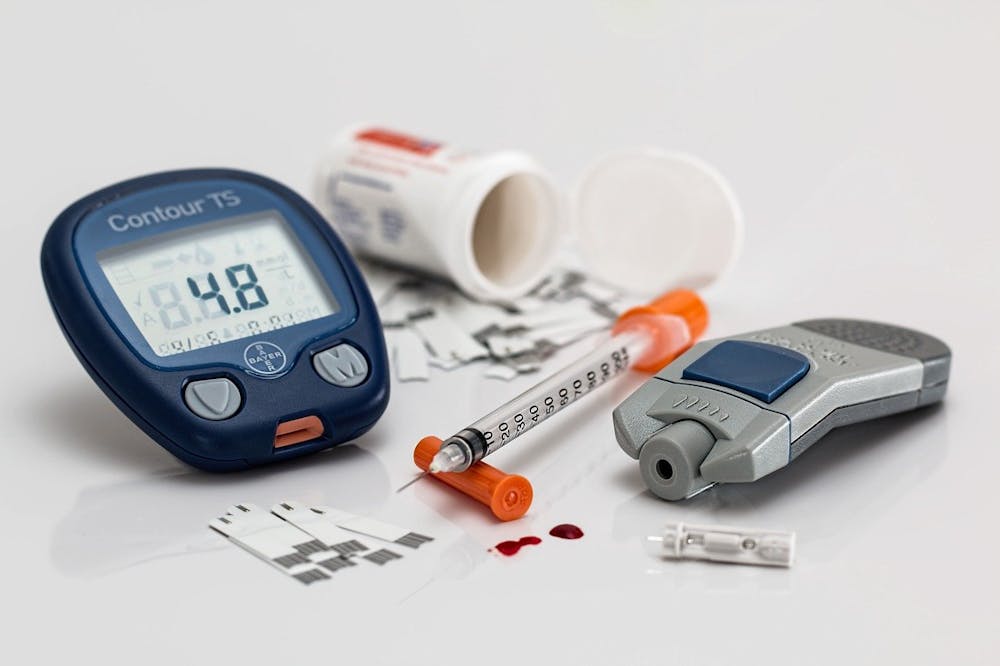
Must Read: How To Stop And Reverse Heart Disease Without Medicine
What Factors Causes Diabetes?
Many factors can cause diabetes. It includes high blood cholesterol, obesity, poor diet, and physical inactivity. A high level of insulin in the bloodstream is another factor that can lead to diabetes.
1. High Cholesterol
High cholesterol is the primary risk factor for diabetes. High blood cholesterol increases the risk of developing atherosclerosis, inflammation, and insulin resistance. These are all known contributors to the development of type 2 diabetes. High cholesterol is often looked at as a “silent killer”. Because it doesn’t show any symptoms, that doesn’t mean it isn’t damaging your body.
2. Obesity
Obesity causes diabetes due to many unsafe foods in your diet. Obesity creates a high glucose level in your body which can affect your body organs. Body cells start burning sugar for energy instead of using oxygen. This reduces your body’s metabolism rate and causes diabetes.
3. Physical Inactivity
Physical Inactivity causes diabetes. Because it leads to a sedentary lifestyle, which can lead to elevated levels of glucose in the body. It causes your muscles, organs, brain, and body to store up fat which leads to type 2 diabetes.
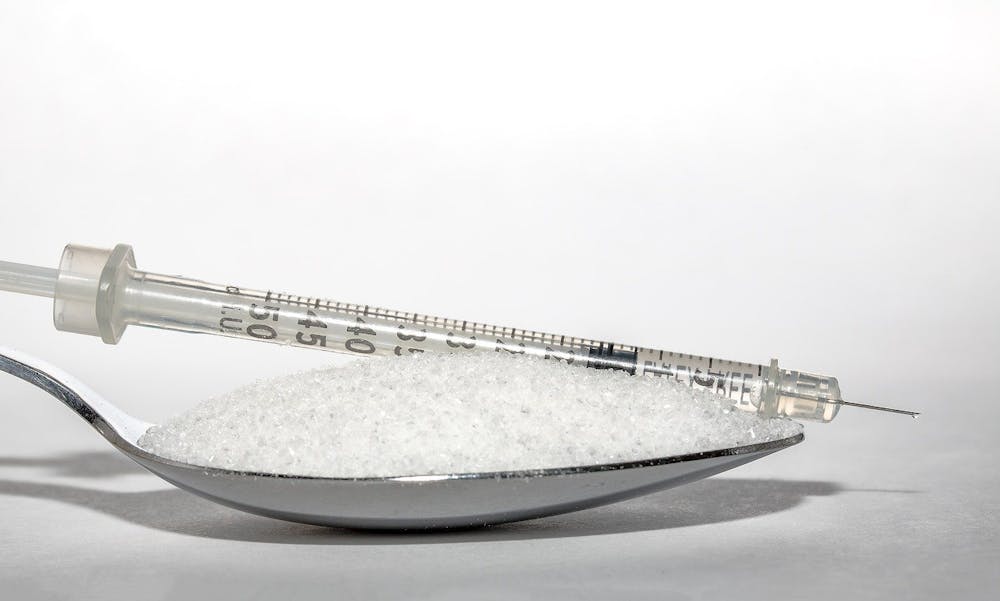
Also Read: 15 Best Vegetables For Diabetic Patients In India
When Diabetes Drugs Are Prescribed?
Doctors may prescribe diabetes drugs to patients if they think that the patient’s health has worsened. They check a person’s health before deciding whether to prescribe medicines. However, doctors also consider lifestyle modification as the first option to treat a diabetic patient. Type 1 diabetes can be controlled with proper diet and lifestyle changes. Research says that even type 2 diabetes is reversible through natural ways.
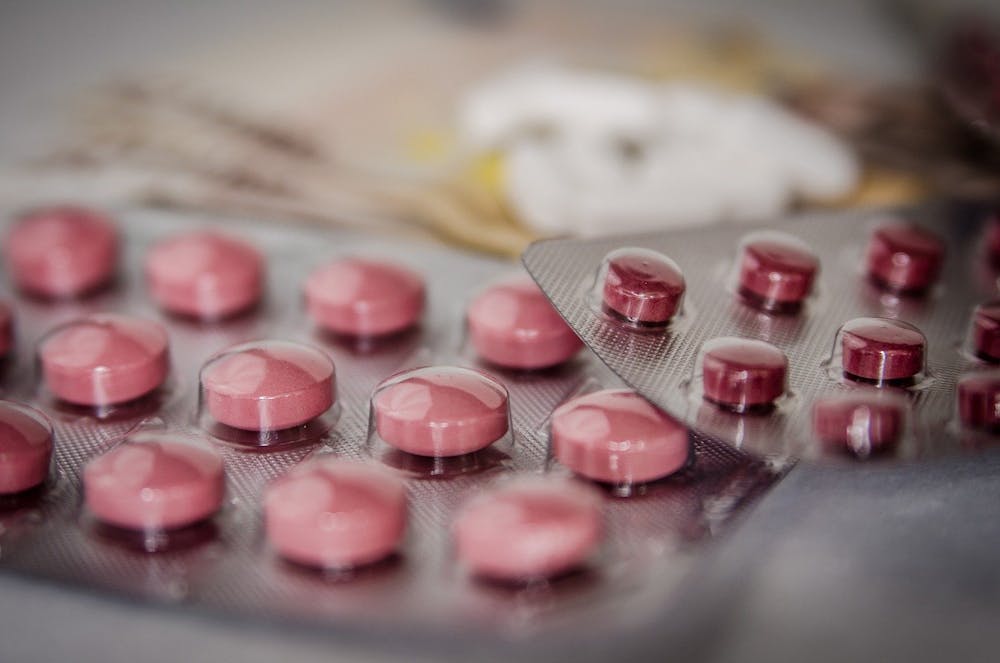
Check This: The 8 Best Fruits, Good For The Heart Health
Side Effects Of Taking Diabetes Medicine
The side effects of sugar medicine can be serious to health. It can even cause the death of people suffering from diabetes. Doctors may prescribe a variety of medicines. Each of these medicines interacts differently with the human body. Some may feel better after taking diabetes drugs. While other experiences serious side effects of taking diabetes medicine . People who take diabetes medicines should be aware of the possible side effects and track their health.
So, let's discuss a few drugs to avoid in diabetes.
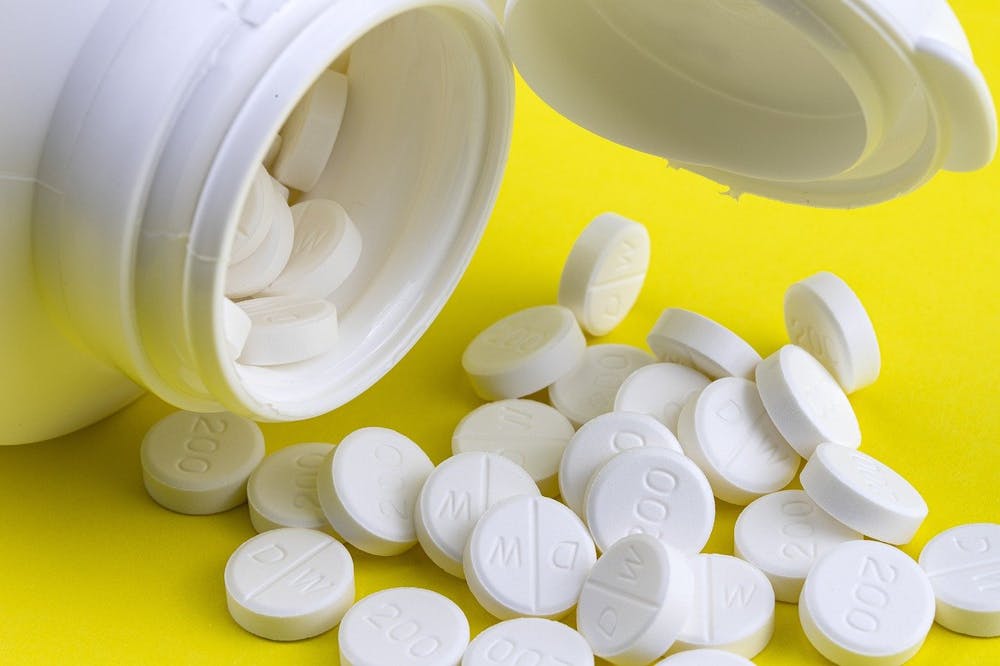
1. Metformin
Metformin is a widely prescribed diabetes medicine. It works by helping the body to use carbohydrates more effectively for producing energy. This medicine slows down the release of sugar into the bloodstream and reduces the risk of developing diabetes.
Metformin Side Effects
After taking metformin tablets you may experience symptoms like nausea, vomiting, and diarrhea. These are the most common side effects of diabetes medication. These problems usually go away as the body gets used to the drugs.
But in some cases, people might face serious problems like lactic acidosis, anemia, and hypoglycemia. If you will feel any of these symptoms like weakness, breathing problems, or muscle pain you must immediately call your doctors. People suffering from kidney, heart, or liver disease will be at higher risk of lactic acidosis while taking metformin.
2. Meglitinides
Another diabetic drug that your doctor may prescribe is Meglitinides such as repaglinide. Meglitinide drugs are used to treat high blood sugar levels in people with diabetes. They are usually oral medicines used to treat type 2 diabetes. Meglitinides help to produce more insulin in the body by stimulating the beta cells.
Meglitinides Sugar Tablets Side Effects
Side effects of blood sugar medication that belongs to the meglitinides class can be low to severe. Medicines like repaglinide and nateglinide are the types of diabetes drugs that cause weight gain. People taking meglitinides can suffer from low blood sugar. You might feel lightheadedness, confusion, or excessive sweating as a symptom. Keep checking your blood sugar levels if you have been prescribed this drug for diabetes.
3. Sulfonylureas
Sulfonylureas are antibiotic drugs used in the treatment of diabetic patients to reduce sugar levels in the blood. Medicines like glimepiride and glyburide belong to this class. They are effective drugs for bacterial and fungus infections. However, they are not so effective in treating diabetes. They can even cause more harm by causing a lot of allergic reactions.
Sulfonylureas Side Effects Of Sugar Tablets
These are diabetes drugs that cause low blood sugar. The most common signs of low blood sugar include dizziness, confusion, and sweating. It can also cause weight gain, skin rashes, dark-colored urine, feeling hungry, and an upset stomach. People who are suffering from liver and kidney problems must avoid these medicines.
4. Thiazolidinediones
Thiazolidinediones also known as TDSs, are a class of diabetes medications. It improves insulin sensitivity in the kidneys and pancreas. Pioglitazone and rosiglitazone are some drugs that fall under this category.
Thiazolidinediones Diabetes Medicine Side Effects
The most common side effects associated are skin and internal organ problems. This diabetic drug can also lead to weight gain, high cholesterol levels, and even heart failure. In rare cases, Thiazolidinedoiones can cause cancer in the bladder of women. You may suffer from insomnia, dizziness, anxiety, nausea, and depression after taking Thiazolidinediones.
What Is The Alternative Process To Treat Diabetes?
Although doctors prescribe medications as a treatment for diabetes. They also consider lifestyle treatment the best and safe option to control diabetes. A lifestyle treatment is a kind of therapy that is usually meant to help a person live a healthier life. This treatment focuses on a natural method to reverse and prevent diabetes. It can include diet, exercise, stress management, and sleep apnea treatment. A few common lifestyle changes like losing weight, exercising, and controlling blood pressure can help you live a healthy life. Check here a few things that you can do to prevent and reverse diabetes.
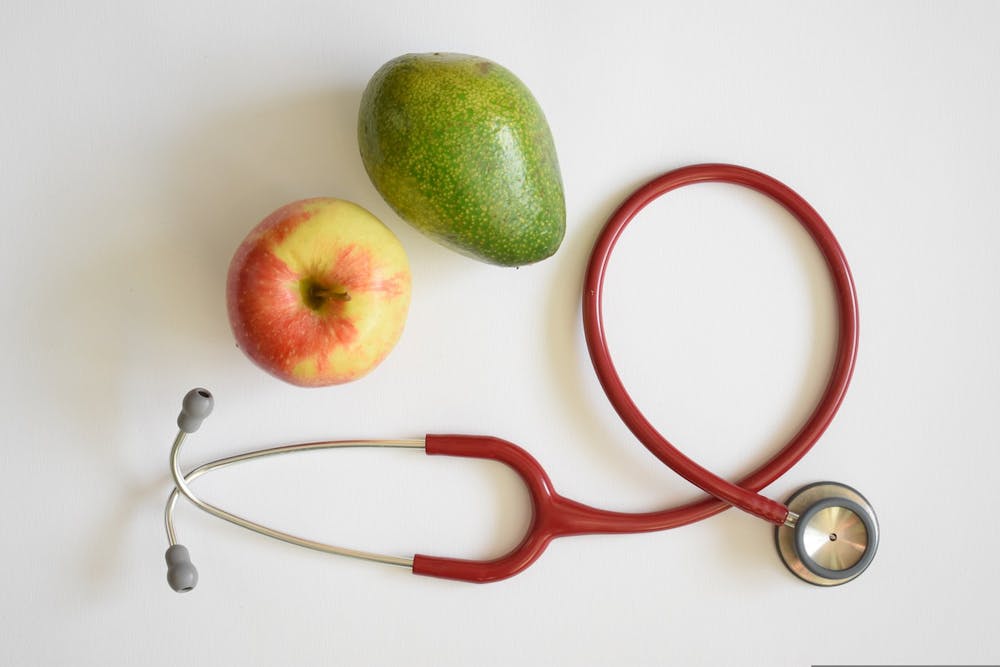
1. Start Eating Healthy Foods
A healthy diet can prevent diabetes by helping you manage your blood sugar level and control your weight. It’s important to follow a healthy eating pattern that encourages good nutrition. If you choose to eat less fat and cholesterol; your body will use more calories from the carbohydrates that replace it.
In this way, you can help prevent the high levels of bad (LDL) cholesterol that are a major risk factor for heart disease and diabetes. Include plenty of whole grains, vegetables, and fruits best for diabetic patients in your daily diet. Increase your carb intake and minimizes the amount of sugar, fat, and sodium to control sugar levels.

2. Engage In Physical Activity
You can also control your diabetes by doing exercise regularly. Regular physical activity helps keep glucose at healthy levels throughout the day. The most effective exercise for preventing diabetes include moderate and vigorous aerobic activities, jogging, swimming, and stretching exercises. Set a goal of doing exercise daily for 30 minutes to lower the chance of developing diabetes and heart disease.

3. Managing Stress Is Very Important
Stress is a major factor in developing most lifestyle disorders. Stress can cause the release of adrenaline, which can lead to a rapid rise in blood sugar. High levels of stress increase the body's production of cortisol, adrenaline, and other hormones. This may lead to unhealthy changes in fat distribution and glucose metabolism. Managing stress can prevent this, as well as other potential health issues.

Summary
Taking diabetes medicines can have several negative effects on your health. The most common side effects of taking these medicines include changes in blood sugar levels and weight gain. Too much medication can be harmful to a person’s health, and can even lead to death. It can damage your kidney, affect your heart, and create vision problems. Hence, it's better to go make lifestyle changes and opt for a natural way to normalize your health. You must opt for a natural therapy that helps control your blood sugar without any side effects on your health.
FAQ-
1. What are the side effects of diabetic medicine?
Side effects of diabetic medicine can range from mild to severe, including nausea, reduced kidney function, and eye problems. When taking the medicine, you may also experience an increased heart rate or a feeling of fullness, or diarrhea.
2. What is the most common side effect of anti diabetic drugs?
The most common side effect of anti-diabetic drugs is hypoglycemia. Hypoglycemia is a condition in which the blood glucose level decreases.
3. What are the drug interactions with metformin?
The most common drug interactions with metformin are by cholesterol-lowering medications, such as statins. Some medicines can interact with metformin and can cause hypoglycemia.
4. What is the most serious side effect of metformin?
The most serious side effect of metformin is lactic acidosis, which is a potentially fatal condition where the blood becomes acidic due to the build-up of lactic acid.
5. Is insulin better than pills?
Medicine and insulin are both ways to treat diabetes. The key difference is that medicine increases the amount of insulin your body releases; while Insulin works by signaling the body to take in more glucose from the bloodstream. It depends on the stage of your disease and how your body reacts to it.
6. Which tablet is best for diabetes?
For people with diabetes, there are many tablets that can help you monitor and control your glucose levels. It is important to note that different tablets work differently for different people. However, it’s better to opt for lifestyle changes to prevent the risk of developing diabetes without having any side effects.
